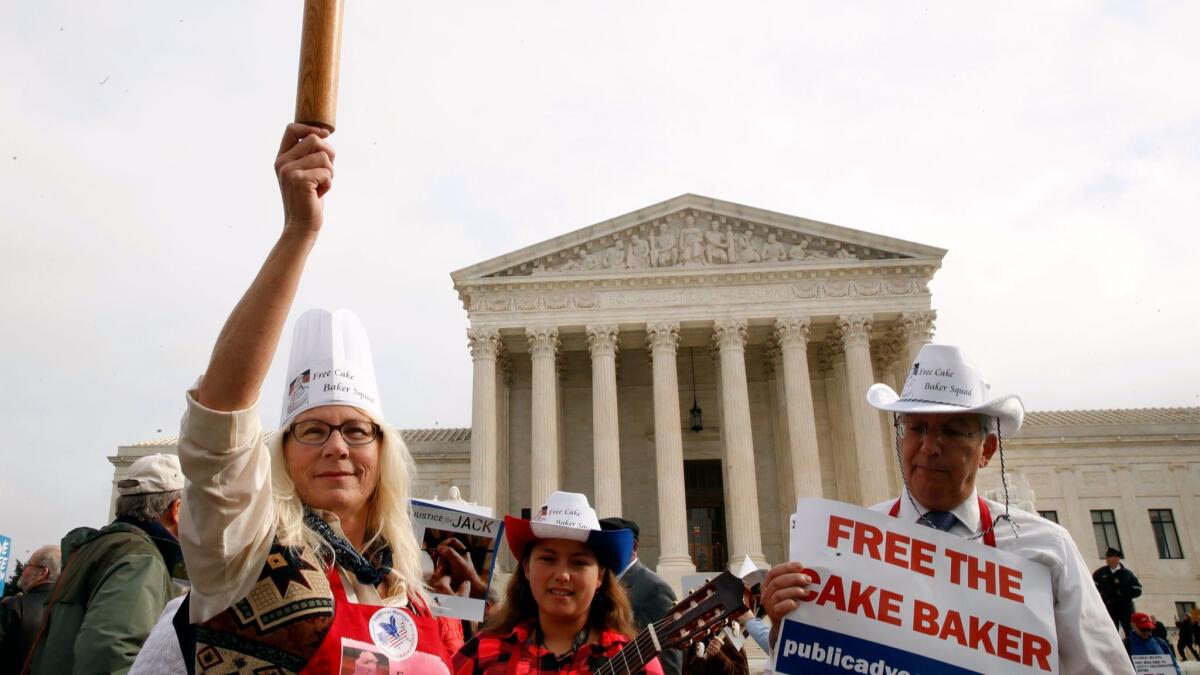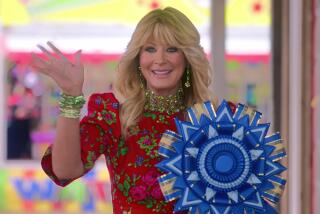Editorial: A baker can’t discriminate in the name of free speech or religion

The Supreme Court on Tuesday heard arguments in an important case in which a Christian baker is arguing that he has a constitutional right to refuse to bake a wedding cake for a same-sex couple. Nothing emerged in the arguments to shake our view that the court would be embarking on a dangerous course if it accepted that argument.
After Jack Phillips refused to bake — or, as he would put it, “create” — a cake for Charlie Craig and David Mullins, the Colorado Civil Rights Commission found that Phillips had engaged in discrimination on the basis of sexual orientation. That judgment was upheld by a Colorado court.
But on Tuesday Philips’ lawyer told the justices that the state had violated Phillips’ 1st Amendment rights when it ruled that he was obligated, in effect, to endorse gay marriage by creating one of his signature cakes for the couple — or, as the lawyer described it, to “sketch, sculpt, and hand-paint cakes that celebrate a view of marriage in violation of his religious convictions.” That’s a dramatic but deceptive description of what’s at stake in this case.
Phillips’ religious beliefs are worthy of respect; they are not, however, a license to engage in discrimination.
As we have observed before, there may be a small number of people in “expressive” professions — political speechwriting, for example — who might claim the right to refuse to craft a message they considered offensive because the product was as much their creation as that of their client.
Bakers of wedding cakes, however talented, don’t belong in that category. If Phillips could cite his creativity to escape complying with fundamental civil rights laws, why couldn’t a chef, hairstylist or makeup artist do the same? And if Phillips could deny his services to a gay couple because he objects to same-sex marriage, could he also turn away a black couple on the grounds that he objects to interracial unions?
In considering Phillips’ weak claim of a free-speech right, the court must balance it against the strong public interest in requiring merchants to treat all customers equally.
As Justice Sonia Sotomayor eloquently put it: “We’ve always said in our public accommodations law [that] we can’t change your private beliefs, we can’t compel you to like these people, we can’t compel you to bring them into your home, but if you want to be a part of our community, of our civic community, there’s certain behavior, conduct you can’t engage in. And that includes not selling products that you sell to everyone else to people simply because of their either race, religion, national origin, gender, and in this case sexual orientation.”
The justices’ appeared closely divided, with Justice Anthony Kennedy likely to be the deciding vote. Kennedy had harsh words for a Colorado official for what he said were disrespectful comments about Phillips’ religious beliefs.
Phillips’ religious beliefs are worthy of respect; they are not, however, a license to engage in discrimination. That is what the court must rule.
Follow the Opinion section on Twitter @latimesopinionand Facebook
More to Read
A cure for the common opinion
Get thought-provoking perspectives with our weekly newsletter.
You may occasionally receive promotional content from the Los Angeles Times.










